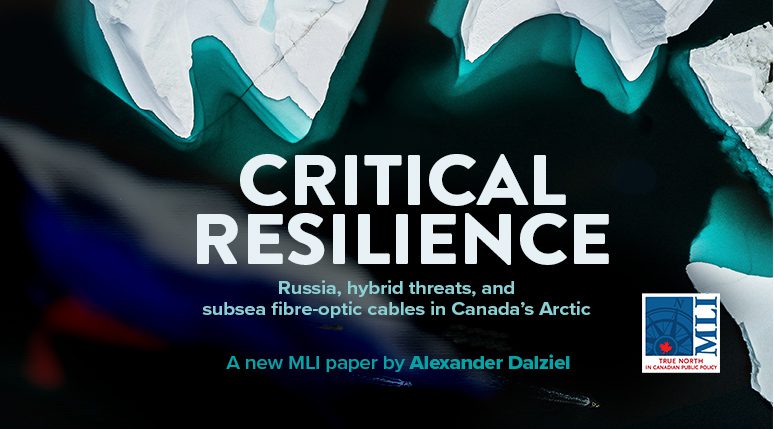By Alexander Dalziel
June 20, 2024
Executive Summary
Neither governments nor the media have had very much to say to date about hybrid threats in the Canadian Arctic, especially about threats to critical infrastructure located there. There are several definitions of the term, but generally speaking, hybrid threats include a wide array of clandestine and deniable activities that are harmful and are carried out by civilians or states with the goal of undermining another state or an institution. In this paper the subject will be hybrid threats to submarine fibre-optic cables. The paper will attempt to shed more light on the challenges of keeping this critical infrastructure secure and the potential threats to it that may manifest over the next two decades. The paper’s focus will be on hostile actions that attempt to covertly sabotage or interfere with the cables where the perpetrator does not want to be identified conclusively. As the paper indicates, it is important for countries to consider the threats, vulnerability, and risks their critical infrastructures face so that at the earliest stages possible they can build in resilience, which is the main deterrent and mitigation to hybrid threats.
The next decade will see more submarine fibre-optic cables installed in Canada’s northern waters. Those cables will provide a data infrastructure that is critical to the region’s security, economy, and society. Few investments are more important for the country to protect. That critical infrastructure will be built in a world dealing with climate change, geopolitical rivalry, more human activity than ever, and legal grey zones. Accordingly, over the next two decades threats to critical undersea infrastructure will likely increase steadily from their currently negligible level and are likely to be classified as low- to medium-threat, high-impact activities.
Currently this type of threat is largely nascent, but a large part of deterring hybrid threats over the long term is ensuring that the country builds its critical infrastructure with the necessary mitigations to address the potential risk of sabotage. A number of malign forces, including the People’s Republic of China, are potential hybrid threat actors in Canada’s Arctic, but Russia is likely to remain the main concern for Canada by virtue of its geopolitics, geography, and capabilities. The poor state of Canada-Russia relations, mainly due to the latter’s war in Ukraine, creates some of the impetus for Russia to attempt to mount hybrid operations against this country. Certainly, Canadian official decision-makers, business enterprises, and civil society should expect that Russia would consider taking hostile action in an attempt to influence Canada’s international conduct. The Arctic is one place where there is the potential for such actions.
Case studies from the Nordic region show that it is very difficult for investigators to determine whether human-caused damage to critical subsea infrastructure is accidental or intentional, particularly in areas where other activities such as commercial fishing are occurring.
Dangers to submarine cables can be mitigated, not eliminated. Improving situational awareness and having response plans in place reduces the risks. The best way to improve situational awareness is to make sure the Canadian Arctic has an adequate array of sensors and operational platforms such as icebreakers and submarines. Also crucial is a whole-of-society approach to these threats that includes all levels of government, Inuit, and First Nations treaty-rights holders, and the business and expert communities. Finally, law enforcement agencies like the Royal Canadian Mounted Police and Fisheries and Oceans Canada require investments to ensure that they can patrol and investigate incidents involving submarine fibre-optic cables amid the specific challenges of the Arctic.
Read the full paper here:







